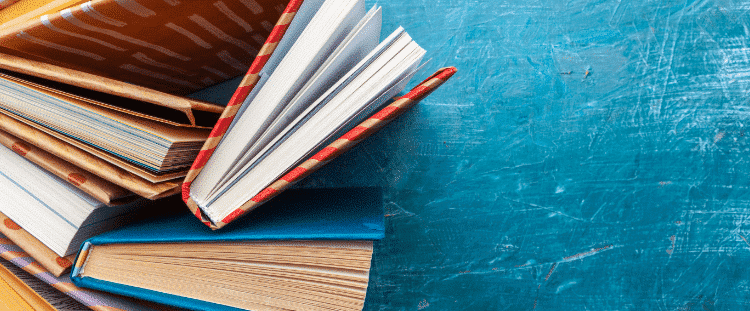
The INCLUDE team’s reading list: February 2022
About the reading list
One of INCLUDE’s core beliefs is that so much knowledge already exists, it just needs guiding to the right places and the right people in order to reach its full impact for policy and, ultimately, for development. Whether you are seeking information to guide policy, embarking upon a piece of research, or simply interested in broadening your knowledge and staying updated on inclusive development in Africa, we hope this source can be a good starting point.
- Social Protection and Jobs Responses to COVID-19: A Real-Time Review of Country Measures (World Bank) -This “living paper” contributes to the global knowledge on how countries are responding to the pandemic by documenting real-time actions in a key area of response – that is, social protection measures planned or implemented by governments. For the purpose of this review, World Bank organized interventions by social assistance, social insurance and labour market programs. For the latter measures, World Bank deliberately focused on supply-side programs (e.g., mostly wage subsidies and other activation programs).
- Introducing J-PAL’s new Social Protection Initiative and sector (IPA) -J-Pal has launched a brand new sector and initiative to generate rigorous evidence on the effectiveness of social protection programs and to help partners apply evidence to high-level decision-making. J-PAL will foster the generation of rigorous evidence on social protection through the new Social Protection Initiative (SPI), a collaboration with Evidence for Policy Design (EPoD) at the Harvard Kennedy School. SPI will be managed within J-PAL’s new Social Protection sector. Sector co-chairs, Rema Hanna and Ben Olken, and staff will work to identify policies effective at providing financial assistance to low-income families, insuring them against shocks, and breaking poverty traps.
- Designing financial services and social protection programs to enhance women’s economic empowerment (IPA) -Financial inclusion and social protection programs often provide women with microcredit, savings accounts, or cash transfers as a strategy to promote women’s economic empowerment in low-resource settings alongside other economic objectives. A review of 35 randomized evaluations and quasi-experimental studies in 20 low- and middle-income countries found that access to financial resources or services did not consistently enhance women’s economic empowerment. Policymakers delivering financial inclusion and social protection programs in contexts where women lack power over household resources should consider employing design features that enhance women’s control.
- Ethiopia Strategy Support Program (ESSP) (IFPRI) -The Ethiopia Strategy Support Program (ESSP) is a collaborative program undertaken by the International Food Policy Research Institute (IFPRI) and Policy Studies Institute (PSI). In order to support inclusive and sustainable growth and transformation in Ethiopia, the program works closely with local partners to assure that relevant research evidence is available for improved decision making and that local capacity is gradually formed so that the increasingly complex questions in Ethiopia can be tackled in a meaningful way by the relevant government institutions and other concerned local partners.
- Making the future of African STEM female (Brookings) -Without a huge investment in science, technology, engineering, and mathematics (STEM) education, Africa will not achieve the goals the African Union has laid out in her 2063 agenda. Given the increased demand for STEM knowledge in a post-COVID world and education losses caused by the pandemic, support for girls in STEM education has never been more pressing. Indeed, the demographic makeup of girls and women in Africa must be intentionally harnessed to position Africa as the technology hub for the future.
- The Long-Run Decline of Education Quality in the Developing World (CGD) -International organizations like the World Bank and UNESCO have declared a “learning crisis” in the developing world, with many school systems failing to reliably produce even basic literacy and numeracy skills. The Center for Global Development (CDG) uses comparable, survey-based literacy tests for repeated cross-sections of men and women born between 1950 and 2000 to study education outcomes across cohorts in 87 countries. The CDG finds that education quality, defined as literacy conditional on completing five years of schooling, stagnated or declined across the developing world over half a century, with pronounced drops in both South Asia and sub-Saharan Africa.
- Improving access to quality public education in Africa (Brookings) -On February 8, 2022, Rebecca Winthrop testified before the U.S. House Foreign Affairs Committee on improving access to quality public education in Africa. Given the importance of educating Africa’s children and youth, Rebecca Winthrop would urge the committee to bolster U.S. government’s attention, funding, and support to increase access to quality education. She offers four recommendations for the committee to consider as possible ways to do this: 1. Harness the innovative capacity of African communities; 2. Support enriched teaching and learning experiences to improve foundational literacy and numeracy; 3. Increase investments in improved models of learning that prepare African youth for the future of work; 4. Lead on system transformation in the face of climate change.
- The EU Should Build Skills in Africa, Not Just Promote Mobility (CGD) -Late in 2020, the European Union (EU) released its New Pact on Migration and Asylum. It aimed, among other things, to implement “Talent Partnerships” with African countries. These Talent Partnerships were to better link migration and skills development, a move the Center for Global Development heralded. Based on discussions with EU Commissioner for Home Affairs Ylva Johansson, and conversations at the Vienna Migration Conference, this blog outlines how the European Commission can put Talent Partnerships (that generate meaningful benefits for countries of origin, countries of destination, and migrants themselves) into practice.
- AUC and ILO reaffirm commitment to strengthen social justice and decent work in Africa (AU) -The African Union Commission (AUC) and International Labour Organization (ILO) have reaffirmed their cooperation and partnership by signing an agreement aimed at improving the world of work and employment in Africa. The new partnership agreement, between the AU and the ILO, was signed in a virtual ceremony on 4th of February 2022 on the margins of the 40th Ordinary Session of the African Union Executive Council, in Addis Ababa, by H.E. Minata Cessouma Samate, the African Union Commissioner for Health, Humanitarian Affairs and Social Development and Cynthia Samuel-Olonjuwon, the ILO Assistant Director-General and Regional Director for Africa.
- The private sector must do its part on data governance in Africa (Brookings) -The last decade has seen an acceleration in the digitization of many aspects of our lives including financial services, commerce, education, and healthcare. Data gathering and exchange have accelerated alongside this swift uptake of digital engagement, and data has become the new essential commodity—with Africa as the next frontier. However, this rapid change brings along questions of data governance and privacy, especially as the implementation of the African Continental Free Trade Area (AfCFTA) moves forward. As the tech sector waits for regulators to catch up, individual companies can do more to protect consumers on their own.
- Digital Technologies and Election Management in Africa’s Democratisation Process: More Technocratic than Democratic? (CODESRIA) -In this CODESRIA Working Paper, Prof. Okechukwu Obinna Ibeanu cautions that digital technologies for electoral management are more technocratic than democratic and can’t, by themselves, assure the legitimacy of outcomes. In 2019 the CODESRIA Democratic Governance Institute was held in Abidjan, Côte d’Ivoire from 15 July to 2 August 2019. The theme of the Institute was ‘Digital Technologies and Election Management in Africa’s Democratisation Process’. This report presents an overview, appraisal and a summary of the outcomes of the Institute, focusing on its organisation and academic programme.
- Repurposing agricultural policies and support: Options to transform agriculture and food systems to better serve the health of people, economies, and the planet (IFPRI) -How can agricultural support policies be repurposed to make the food system deliver better outcomes? This was the broad question the World Bank and the International Food Policy Research Institute (IFPRI) sought to answer in this study. The report finds that repurposing a portion of government spending on agriculture each year to develop and disseminate more emission-efficient technologies for crops and livestock could reduce overall emissions from agriculture by more than 40 percent. Meanwhile, millions of hectares of land could be restored to natural habitats. The economic payoffs to this type of repurposing would be large. Redirecting about $70 billion a year, equivalent to one per cent of global agricultural output, would yield a net benefit of over $2 trillion in 20 years.
- Expanding African Trade to Boost Growth and Reduce Poverty (World Bank) -A new book from the World Bank, ‘Africa in the New Trade Environment: Market Access in Troubled Times’, analyzes the trade track ahead of Africa and recommends the kind of aerodynamics, tires, and engine that the region needs to succeed. The book offers a three-pronged policy approach to bolster Africa’s market access in the current global trade environment: evaluate and re-engineer trade with traditional partners, the United States (US) and the European Union (EU); strategically diversify trade with Asia, and look inward to deepen regional trade integration.
- Greater and More Diverse Participation in Global Trade is Key to Achieving Africa’s Economic Transformation (World Bank) -African countries must expand and diversify their participation in international trade and global value chains to reduce poverty on a large scale and transform their economies, says the new World Bank book ‘Africa In the New Trade Environment: Market Access in Troubled Times’. The continent must go beyond trade in raw materials and link its production and trade to the global economy to take advantage of the unlimited demand and innovation along the supply chain.
- What a True Partnership of Equals Would Mean for the European Union and African Union (CGD) -After its cancellation in 2020, the European Union (EU)-African Union (AU) Summit began on February 17th, 2022. But much has changed in the last two years. The COVID-19 pandemic still lingers and there is a staggering need for a sustainable post-pandemic recovery plan in Africa. This recovery is hindered by increased security issues and political instability in some regions, coupled with the urgent need to tackle climate change on a continent that will be home to 2.5 billion people by 2050. Against this backdrop, this blog, written on February 15th, suggests that the Summit is an opportunity to reset the EU’s relationship with Africa as a true partnership of equals.
- Domestic Revenue Mobilization and Debt Relief: The Lack of Any Link (CGD) -As the global financial community considers how to extend debt relief accompanied by IMF adjustment programs to vulnerable low-income countries, the issue of policy conditions for fiscal adjustment will inevitably arise. This paper considers the effectiveness of conditions related to domestic revenue mobilization (DRM) in the last systematic round of debt relief in the early 2000s Highly Indebted Poor Countries Initiative and the Multilateral Debt Relief Initiative (HIPC/MDRI). The CGD finds that debt relief had no impact on low-income countries’ DRM. Countries benefitting from debt relief had roughly the same DRM as those that did not. And DRM grew only slightly over time for both sets of countries.
- Ethiopia says food security a priority, despite Tigray famine conditions (Devex) -The African Union, which held its annual summit on February 5th and 6th, has declared this the “Year of Nutrition and Food Security.” As the country hosts of the summit, Ethiopia echoed these calls to increase access to food across the continent, releasing a statement on February 6th saying that addressing food and nutrition insecurity is “one of the priority development areas for the country.”
- Da’aro Youth Project: supporting young asylum seekers and refugees from the Horn of Africa (PEP community) -Da’aro Youth Project was established in 2018 by members of the Eritrean community in South London and works to support young refugees and asylum seekers arriving in the UK from the Horn of Africa. The Professional Eritrean Platform spoke to Dehab Woldu (Founder and Operational Manager) to find out more.
We encourage anyone from our platform, close network and wider audience to get in touch with recommendations for this reading list and to help us with our goal of sharing and disseminating knowledge. Please mail your suggestions to includeplatform.net with the subject “Contribution to INCLUDE reading list“.



